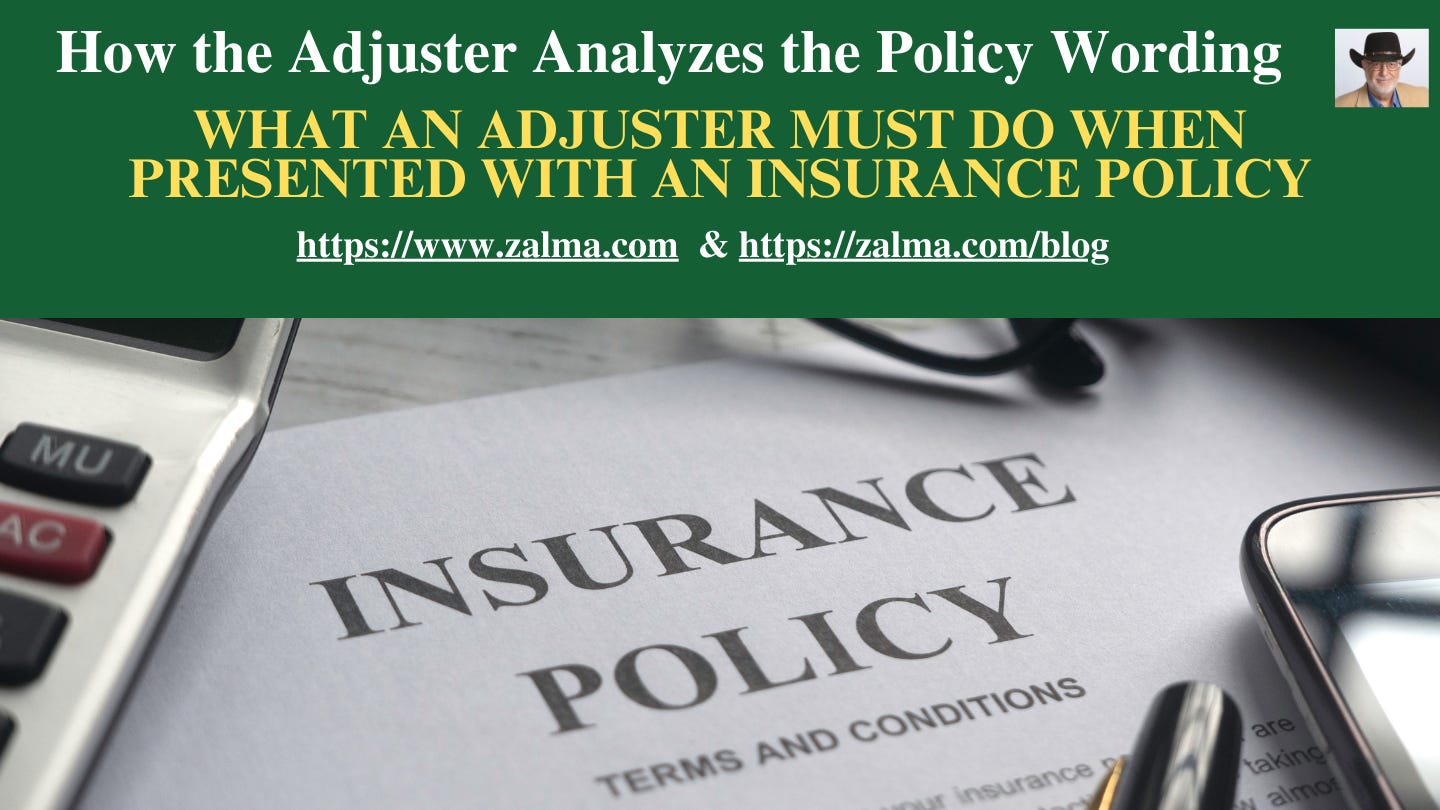How the Adjuster Analyzes the Policy Wording
What an Adjuster Must do When Presented With an Insurance Policy
This article was adapted from my book The Compact Book of Adjusting Property Claims – 4th Edition available from amazon.com
The adjuster, when interpreting a policy of insurance, must, like a court, analyze it like other contracts and construe the contract to give effect to the intention of the parties as manifested by the reasonable meaning of policy terms. [Amidano v. Donnelly, 260 N.J. Super. 148, 154, 615 A.2d 654 (App.Div.1992), certif. denied, 133 N.J. 435, 627 A.2d 1141 (1993).]
Because of the unequal bargaining power between an insurance company and its insured, and insurance companies' expertise in this field, insurance policies are viewed as adhesion contracts and are always construed, if there is any ambiguity, to the benefit of the insured.
Although a court will not write a better policy for the insured than he or she purchased, an adjuster is obliged (as is a court) to strictly construe any exceptions to coverage against the insurer.
Courts will enforce only the restrictions and the terms in an insurance contract that are consistent with the objectively reasonable expectations of the average insured and are clear and unambiguous.
The reasonable expectations rule is that policies are to be construed in accord with the reasonable expectations of a layperson.
For example Hawaii’s Supreme Court will probably adopt the analysis used by other courts that have addressed exclusions for sporting or athletic events. A District Court, therefore, found that clear and unambiguous exclusions applied and there was no duty to defend. [See, e.g., Nautilus Ins. Co. v. Mobile Area Mardi Gras Ass'n, Inc. ("MAMGA"), Civil Action No. 10-0025-W, 2010 WL 4269184, at *4-5 (S.D. Ala. Oct. 27, 2010); and Zurich Reinsurance (London) Ltd. v. Westville Riding Club, Inc., 82 F. Supp. 2d 1254, 1255-57 (E.D. Okla. 1999), aff'd sub nom. Zurich Reinsurance (London) Ltd. v. Remaley, 203 F.3d 837 (10th Cir. 2000) and Great Divide Ins. Co. v. Hawaiian Kamali`i Inc. (D. Haw., 2019)]
Courts are required to interpret terms in the policy in light of common speech and the reasonable expectations of a businessperson. [Belt Painting Corp. v. TIG Ins. Co., 100 N.Y.2d 377, 383 (2003) (internal citation omitted) and Lepore v. Hartford Fire Ins. Co. (S.D. N.Y., 2019)
While the general standard for interpretation is the intent of the parties, when the words of a contract are clear and explicit and lead to no absurd consequences, no further interpretation may be made.
The adjuster, working for the insurer, will not search a policy to reach a result different than the wording that shows the clear and explicit parties intent. [In re Katrina Canal Breaches Litig., 495 F.3d 191, 207 (5th Cir. 2007) (quoting La. Civ. Code art. 2046).
Accordingly, “[i]f the policy wording at issue is clear and unambiguously expresses the parties' intent, the insurance contract must be enforced as written. [Moore v. Integon Natl Ins. Co., Civil Action 23-4614 (E.D. La. Dec 07, 2023)



